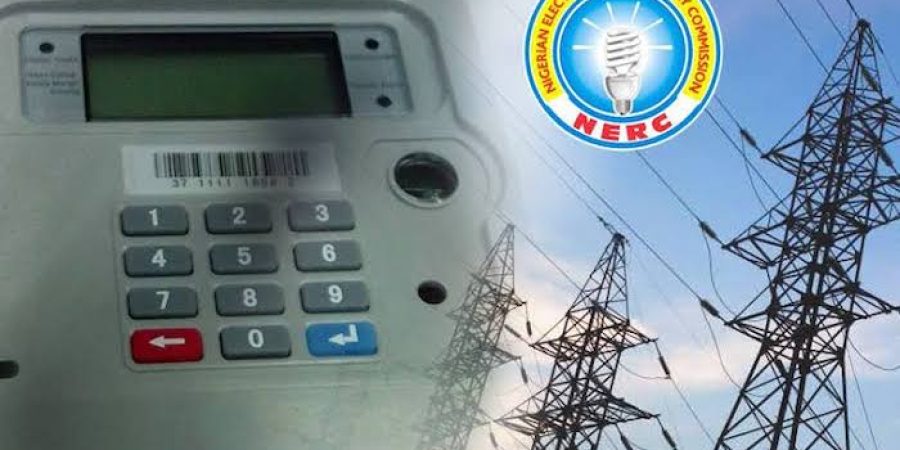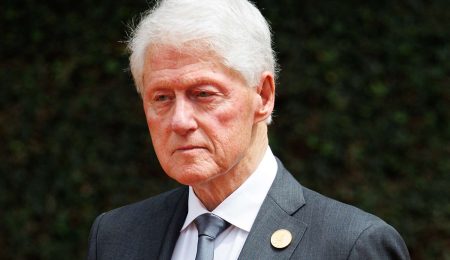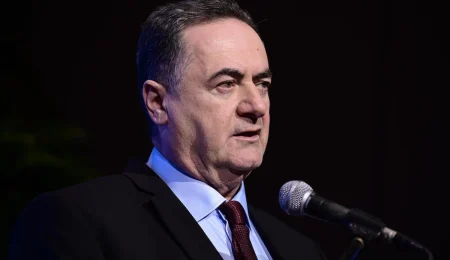A new wave of crisis may be hitting Nigeria’s electricity market soon, as some stakeholders in the sector are raising doubts over the ability of state governments to fix or pay the right tariffs as well as shoulder the shortfalls if the need arises.
The concerns come in the wake of the ongoing implementation of the Electricity Act 2023, which has decentralised the nation’s power sector, allowing states to play in the generation, transmission and distribution chains.
It also allows every state to legally set up its independent electricity regulatory body upon request to the Nigerian Electricity Regulatory Commission (NERC).
NERC’s Commissioner in charge of Legal, Licensing, and Compliance, Dafe Akpeneye, raised the concerns in Lagos at the Energy and Infrastructure Breakfast Session organised by Udo Udoma & Bello-Osagie (UUBO) law firm, themed – “A Dialogue on Solutions to Nigeria’s Power Sector Challenges: Finance, Regulation, and Sustainable Energy Solutions.”
This was just as the Nigerian Governors Forum (NGF) through its Lead Consultant on Power, Mr. Odion Omonfoman, has revealed that despite the constitutional powers of the sub-nationals to play in all the value chains of the sector, no state government was considering investing in large power infrastructure like power generation plants and transmission lines and substations, but were only focused on buying transformers and building distribution substations.
Also on Sunday, the Transmission Company of Nigeria (TCN), responded to the incessant cases of grid collapses in recent times, blaming some electricity infrastructure which it said are as old as five decades as being partly responsible for the problem.
But NERC had recently started handing over regulatory powers to states, including Enugu, Ondo, Ekiti, Oyo, Kogi, Edo and Imo.
President Muhammadu Buhari had in March 2023 assented to the landmark law, which empowers states to licence, generate, transmit and distribute electricity. However, his successor, President Bola Tinubu, also made at least two amendments to the law since he took over the leadership of the country in May 2023.
The electricity market in Nigeria was hitherto centralised, allowing only the federal government to play across the three chains.
But providing insights on the new power sector legal regime during his interventions at the dialogue, Akpeneye said by amending the Constitution and enacting the Electricity Act 2023, NERC will only have jurisdiction over the Federal Capital Territory (FCT) as it transits towards transferring powers to the states.
“Towards the end of the year, Ondo, Ekiti will take over. So, they will be responsible for seeing to the actualisation of what we have started. So as the federal regulator, we have set targets but the implementation will be at the state level”, he said.
Akpeneye, however, raised some doubts about the capacity of the subnational governments to manage tariff setting and payment, especially when the consumers are unable to pay to keep the market afloat. He cited states’ record of non-performance in payment of salaries.
He also pointed out some gaps in the Electricity Act 2023, saying there was no sunset clause that addresses some of the issues that will arise in the course of implementing the law.
He explained: “The law is the law; I can’t question the law. The point is, regardless of what you think, we are going to have maturing moment. So, we will go through our processes.
“But there is a major trigger. It now means that states will now be responsible for the determination of one, what is the tariff? Two, this is the cost-reflective tariff. Three, should my people pay that tariff? Four, if my people are not going to pay that tariff, this is the cheque.
“So that is a serious issue and that is going to be the maturing moment that everyone has to face. And I think we made a mistake in the Electricity Act and the constitution amendment because we didn’t put in place a sunset clause that, on X date, all states should transition.”
He argued that it would be unfair and against the concept of federalism if some states were able to transit and able to foot their electricity bills while others are left to suffer lack of power supply due to their financial incapacity.
He further explained: “So that’s not a tidy arrangement, and it goes against the concept of federalism, in that, there should be parity in the treatment of the sub-nationals.
“So, it’s an interesting question that I think we need to treat with the maturity in which we treated the issue of Doctrine of Necessity when we were about to move power from President Yar’adua to President Jonathan when everybody woke up and said we have to be mature in how we treat this decision.
“That’s where we see ourselves going and we have to manage it well because in actual fact, not many states can afford it.
“Minimum wage of N30,000 was a big challenge for many states and N70,000 is a hard task. Some states haven’t paid the N30,000 and you are telling them to come and pay N70,000. So, we need to have a solution that works”.
Also contributing to the discourse at the session, the Lead Consultant on Power to the NGF, Omonfoman, noted that by November 22, there will be more than seven regulators in the electricity market.
He stated that state governments were not considering investing in large power infrastructure like power generation plants and transmission lines and substations, saying they were only focused on buying transformers and building distribution substations.
He added that most states were focused on creating the enabling environment, legal and institutional framework within their jurisdictions that would allow companies to operate freely to deliver last mile electricity without being constrained by problems associated with the national grid.
Contrary to the fears of looming liquidity crisis in the states’ electricity market, Omonfoman argued that one of the positive impacts to be witnessed with the new regime would be improved collection which he noted had been the biggest challenge in the sector.
He said with no exclusivity clause in the Electricity Act that allows existing distribution companies to claim sole ownership of their areas of operation, more utility firms and partners would be brought in by the states to play and compete in the sector.
“So, what you now find is state authorities being able to make sure that there is much more efficient service either through these utility players or introducing new players”, Omonfoman said.
Still on the power sector, TCN on Sunday responded to the incessant cases of grid collapses in recent times, blaming some electricity infrastructure which it said are as old as five decades as being partly responsible for the problem.
Speaking on national television on Sunday night, TCN’s Managing Director, Sule Abdulaziz, also argued that despite the recent increase in the tariffs paid by Band ‘A’ customers, the amount paid by Nigerians was still cheap, compared to some other African countries.
Specifically, he listed neighbouring Chad, Mali, Burkina Faso, Senegal and others as some African countries that pay more for electricity than Nigeria. “Most of the equipment we use are over 50 years old,” he lamented.
Stressing that the investment in critical electricity generation and transmission infrastructure must be continuous, Abdulaziz noted that Nigeria requires between 20,000mw to 25,000mw to guarantee 24-hour power supply.
On the Supervisory Control and Data Acquisition System (SCADA) which would help stabilise the national grid during fluctuations, the TCN boss explained that the infrastructure is now 70 per cent complete and would soon be ready for deployment.
He expressed optimism on achieving consistent electricity supply across Nigeria within five years with the right investment.
He said: “Presently, we are doing the SCADA system for the whole network and it is funded by the World Bank, and the project will take two years to be completed, and now, we have done 70 per cent of the project.
“Once we have the SCADA system, it will reduce the frequency of getting system disturbances. We are trying to upgrade all our transmission lines. The minister is now working with the presidency to have that approval. This is what we call the super grid.
“By the time we have it, even if there is a fault in one transmission line, you can switch to the one so that we have an alternative but now, the type of grid we have, once we have a problem with the line, you have no other line to switch on to.”
But he argued that power collapses or disturbances could be triggered from any segment of the supply value chain, including generation, transmission or distribution, emphasising that it was unfair to always blame the government-owned entity.
“If there is a system collapse, it doesn’t mean all the problems are from TCN, it can be from generation, it can be from transmission, it can be from distribution. Some of these can also come from disaster. You cannot say it is the fault of the TCN just like that,” he argued.
He pointed out that despite the hike in electricity tariff paid by Nigerians, the cost of energy is still cheaper in Nigeria than in some neighbouring countries, laying the problem partly on the high foreign exchange rate.
“We are feeling electricity is expensive here in Nigeria, but it is actually cheap. If you go to other African countries, for instance, you go to Niger, you go to Burkina Faso, you go to Senegal, you will realise, electricity in Nigeria is cheaper,” he added.
He also refuted insinuations that the national grid collapsed three times in one week, clarifying that rather they were ‘disturbances’.
“Let me just say the grid didn’t collapse three times in October. We had grid disturbances only two times. I think the first was on Monday and the second yesterday (Saturday). There was news that the grid collapsed again on Tuesday. That one was incorrect. On Monday, we were to fix the grid but had some setbacks.
“TCN is the one in charge of the grid. It doesn’t mean that all the problems are from the TCN. It can be from generation, transmission, and distribution. Sometimes it can be a (result of) disaster. So, if there is any system collapse, we have to conduct studies to find out what the cause is. But you cannot say it is the fault of the TCN just like that.
“Again, the transmission system needs a lot of investments. For so many years in this country, that sector was neglected. Most of the equipment we are using is over 40 to 50 years old. So it is not possible for that equipment to work perfectly. So we are doing our best. We know we can do more. But at least, we are getting to know the problems one by one,” he stated.
Meanwhile, in line with Section 48, subsection 1 of the Electricity Act 2023, (Amended), NERC has fixed Thursday this week to conduct public hearings on critical issues relating to the Nigerian Electricity Supply Industry (NESI).
The commission, in a statement on Sunday, noted with concern the recent escalating incidence of grid disturbances often leading to marked outages in several states.
It said that this was reversing many of the gains recently achieved in reducing infrastructure deficit and improving grid stability.
In this regard, the commission invited NESI stakeholders, civil society organisations, and the general public to a hearing in its Abuja headquarters.
Emmanuel Addeh and Peter Uzoho
Follow us on:



